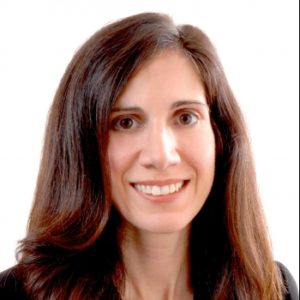
Thursday MIPS Roundtable: Faculty Lab Showcase
1:30-2:00 PM | Dr. Jianghong Rao, Ph.D.
Cellular and Molecular Imaging Laboratory (CMIL)
Professor of Radiology and, by courtesy, of Chemistry
Stanford University
2:00-2:30 PM | Dr. Zhen Cheng, Ph.D.
Cancer Molecular Imaging Chemistry Laboratory (CMICL)
Associate Professor of Radiology
Stanford University
MIPS Roundtables will be every Thursday from 1:30-2:30pm showcasing various topics and are open to all interested.
Please note Zoom information does change week to week.
5/28 Meeting URL: https://stanford.zoom.us/j/92834097988
Dial: +1 650 724 9799 or +1 833 302 1536
Meeting ID: 928 3409 7988

Thursday MIPS Roundtable: Meet our MIPS Instructors
1:30-2:00 PM | Dr. Katie Wilson, Ph.D.
“Optical and Acoustic Molecular Imaging to Identify Lymph Node Metastasis in Head and Neck Cancer.”
Instructor, Radiology
Stanford University
2:00-2:30 PM | Dr. Corinne Beinat, Ph.D.
“Molecular Imaging of Tumor Metabolism”
Instructor, Radiology
Stanford University
MIPS Roundtables are every other Thursday from 1:30-2:30pm showcasing various topics and are open to all interested.
Please note Zoom information does change week to week.
6/11 Meeting URL: https://stanford.zoom.us/j/95475611159
Dial: +1 650 724 9799 or +1 833 302 1536
Meeting ID: 954 7561 1159

PHIND Seminar Series
11:00-11:30 AM | Dr. Anoop Rao, M.D., M.S.
“Wearable Sensing for Neonates”
Clinical Instructor, Pediatrics (Neonatology)
Lucile Packard Children’s Hospital
Stanford University School of Medicine
11:30-12:00 PM | Dr. Eric Dy, Ph.D.
“Crowdsourced data and machine learning to design the future of prenatal care”
Co-founder and CEO
Bloomlife
12:00pm – 1:00pm Seminar & Discussion
RSVP Here: https://www.onlineregistrationcenter.com/PHIND061620
This seminar will be available in person and via a Zoom live stream.
Meeting URL: https://stanford.zoom.us/j/92848236311
Dial: +1 650 724 9799 or +1 833 302 1536
Meeting ID: 928 4823 6311
Dr. Anoop Rao Bio
Anoop Rao is a Clinical Instructor in Pediatrics (Division of Neonatology) at the Lucile Packard Children’s Hospital. After completing early medical training in India, he obtained his MS from MIT, and completed clinical training in Pediatrics from Columbia and fellowships in Neonatal Critical Care from Stanford and Biomedical Informatics from Harvard. He spent over 5 years at AgaMatrix, a startup focused on developing high-accuracy blood glucose meters.
At Stanford, his research is on contact and non-contact monitoring of infants. Anoop collaborates extensively with industry and is actively supported by NIH/Maternal and Child Health Research Institute.
Dr. Eric Dy Bio
Eric Dy, PhD is co-founder and CEO of Bloomlife, a women’s health company designing remote prenatal care solutions to improve the health of women and babies. Eric brings unique perspective on the opportunities and challenges in emerging healthcare technologies and delivery models informed by multidisciplinary technical expertise leading business development for Europe’s leading R&D institute, imec. Eric earned his BSc in Bioengineering from Cornell and his MSc and PhD in Biomedical Engineering from UCLA. Bloomlife has been recognized for their pioneering work winning Fast Company World Changing Ideas, Johnson & Johnson Quickfire Challenge, Richard Branson’s Extreme Tech Challenge, MedTech Innovator Award, and speaking at the White House Precision Public Health Summit.
Dr. Eric Dy Abstract
The period from conception through the first 1000 days of life are the most critical for lifelong health and development, yet too often we are failing women and babies at this time. High risk pregnancies are on the rise, access to care is increasingly a problem, and pregnancy complications such as preterm birth now affect 1 in 10 babies. Despite these growing challenges, the way we deliver prenatal care has not fundamentally changed in over 60 years. We need smarter tools, better data, and scalable solutions to improve the health of moms and babies globally.
In this talk Bloomlife co-founder and CEO will share their strategy for designing the future of prenatal care. He will discuss how clinical grade wearables, in the hands of mom, has helped create the largest dataset on pregnancy in the world, and how AI applied to this dataset is seeding breakthrough screening and diagnostic tools to help solve global maternal health issues including preterm birth.
Hosted by: Sanjiv Sam Gambhir, M.D., Ph.D.
Sponsored by: PHIND Center, Department of Radiology and eWEAR Initiative

Thursday MIPS Roundtable: Faculty Lab Showcase
MIPS Roundtables are every other Thursday from 1:30-2:30pm showcasing various topics and are open to all interested.
1:30-2:00 PM | Dr. Brian Rutt, Ph.D.
Cellular & Molecular MRI Laboratory (CMMRIL)
Professor of Radiology
Stanford University
2:00-2:30 PM | Dr. Kathy Ferrara, Ph.D.
Ferrara Laboratory: Image-guided Drug Delivery
Professor of Radiology
Stanford University
Please note Zoom information does change week to week.
6/25 Webinar URL: https://stanford.zoom.us/j/91635637393?pwd=c09vUXYyeU5VeHJBaUJVRHQrT3FJdz09
Dial: +1 650 724 9799 or +1 833 302 1536
Webinar ID: 916 3563 7393
Webinar Password: 271364

Thursday MIPS Roundtable: Meet our MIPS Instructors
MIPS Roundtables are every other Thursday from 1:30-2:30pm showcasing various topics and are open to all interested. Note we will take a break through late July and August.
1:30-2:00 PM | Dr. Ahmed El Kaffas, Ph.D.
Translational Ultrasound for Tissue Characterization and Stimulation
Instructor, Radiology
Stanford University
2:00-2:30 PM | Dr. Brett Fite, Ph.D.
Combining Focal and Immunotherapies
Instructor, Radiology
Stanford University
Please note Zoom information does change week to week.
7/9 Webinar URL: https://stanford.zoom.us/j/91909413178
Dial: +1 650 724 9799 or +1 833 302 1536
Webinar ID: 919 0941 3178
Password: 572746

Thursday MIPS Roundtable: Meet our MIPS Instructors
MIPS Roundtables are Thursdays from 1:30-2:30pm showcasing various topics and are open to all interested. Note this will be our last summer Roundtable and we will take a break through late July and August.
1:30-2:00 PM | Dr. Josquin Foiret, Ph.D.
High throughput ultrasound imaging for improved diagnosis
Instructor, Radiology
Stanford University
2:00-2:30 PM | Dr. Jinghang Xie, Ph.D.
TESLA probes for imaging T cell-mediated cytotoxic response to immunotherapy
Instructor, Radiology
Stanford University
Please note Zoom information does change week to week.
7/16 Webinar URL: https://stanford.zoom.us/j/94952044130
Dial: +1 650 724 9799 or +1 833 302 1536
Webinar ID: 949 5204 4130
Password: 963699

PHIND Seminar Series: What is in your sweat and what can it mean for health and disease?
11:00 AM – 12:00 PM: Seminar & Discussion
RSVP: https://www.onlineregistrationcenter.com/VShankar
Presenter:
Vishnu Shankar, M.S.
Department of Chemistry
Stanford University
Principal Investigators:
Michael Snyder, Ph.D.
Stanford W. Ascherman, MD, FACS Professor in Genetics
Stanford University
Robert Tibshirani, Ph.D.
Professor of Biomedical Data Science and of Statistics
Stanford University
Richard Zare, Ph.D.
Marguerite Blake Wilbur Professor in Natural Science and Professor, by courtesy, of Physics
Stanford University
Location
Webinar URL: https://stanford.zoom.us/s/99817512229?pwd=QitCTjRXMEdBTWZyd29MTHYyNU5Xdz09
Dial: +1 650 724 9799 or +1 833 302 1536
Webinar ID: 998 1751 2229
Password: 489011
ABSTRACT
Sweat is a complex fluid known to be rich in electrolytes, small molecules, and fatty acids. Although adults can sweat up to 10 liters per day, little is still known about the chemical composition of sweat, how this changes, and what are its implications for health and disease. We demonstrate a powerful approach to help elucidate this link, where collecting samples simply requires swabbing a glass slide across one’s forehead in less than 30 seconds. Using the combination of desorption electrospray ionization mass spectrometry and statistical machine learning, our approach can successfully detect over 10,000 metabolites in sweat and identify metabolic changes in the sweat profile related to gender, age, and disease. As an example, we demonstrate in a cohort of 65 subjects the possibility of using just a few metabolites detected in sweat to successfully identify patients with renal disease. More generally, our approach suggests the possibility of using the sweat profile to non-invasively assess individual risk for metabolic diseases in the theme of “Precision Medicine.”
ABOUT VISHNU SHANKAR
Vishnu Shankar recently graduated with his master’s degree in computer science, with a specialization in artificial intelligence from Stanford University. He completed his bachelor’s degree with honors in mathematical and computational sciences in 2018, also at Stanford, with his senior thesis on Bayesian networks for incorporating effect modifiers in meta-analysis. In addition, his background spans biology, mathematics, chemistry, statistics, operations research, physics, and computing. Vishnu has published 6 papers and 3 articles in fields including protein structural prediction, comparison of clinical guidelines cost-effectiveness in type 2 diabetes, development of programs to combat mental illness, cancer diagnosis with analytical chemistry and machine learning, and related areas. He is also the founder of the CARES organization to support peer student wellness at college campuses, for which he won the Asoka Youth Changemaker award sponsored by Boehringer Ingelheim. Vishnu has enthusiastically pursued science since his middle school days and has worked on demonstrating the possibilities of DNA computing, simulating protein folding, studying the genetic modifications in fruits and vegetables, and more. He has been recognized for his scientific research as an Intel Science Talent finalist, Google Science Fair Regional finalist, recipient of the American Institute of Aeronautics and Astronautics Excellence award for his work on epidemiology modeling. Vishnu has interned at Caltech and Genentech, where he applied experimental techniques to purify and study protein behavior including dialysis, titration, chromatography for early stage drug development. He was also selected as one of the two high school students to represent the western US Confucius Institute in Student Leaders Exchange Program in China as a non-native Mandarin speaker.
Hosted by: Sanjiv Sam Gambhir, M.D., Ph.D.
Sponsored by the PHIND Center and the Department of Radiology

PHIND Seminar Series: Identifying Fibroblasts Subtypes Contributing to the Progression of Preinvasive to Invasive Lung Adenocarcinoma
Sylvia Plevritis, Ph.D.
Professor of Biomedical Data Science and of Radiology
Integrative Biomedical Imaging Informatics at Stanford
Stanford University
Location
Webinar URL: https://stanford.zoom.us/s/93945120934?pwd=a29GNjFCUzBtWjRsbFdnUnVUOTMzUT09
Dial: +1 650 724 9799 or +1 833 302 1536
Webinar ID: 939 4512 0934
Password: 767148
11:00am – 12:00pm Seminar & Discussion
RSVP: https://www.onlineregistrationcenter.com/SPlevritis
ABOUT
Dr. Sylvia K. Plevritis is Professor and Chair of Biomedical Data Science, Professor of Radiology at Stanford University and Program Director of the Stanford Biomedical Informatics Graduate Training Program. Dr. Plevritis leads a computational biology cancer research program that bridges genomics, imaging and population sciences to decipher properties of cancer progression and treatment response. Dr. Plevritis received her Ph.D. in Electrical Engineering and M.S. in Health Services Research, both from Stanford University, with a focus on cancer imaging physics and modeling cancer outcomes, respectively. She has had a primary authorship role on over 100 scientific cancer-related articles. She is a fellow of the American Institute for Medical and Biological Engineering (AIMBE) and Distinguished Investigator in the Academy of Radiology Research. She serves on the NCI Board of Scientific Advisors, the Program Leadership Committee of the Stanford Cancer Institute and the Leadership Council of the Stanford Bio-X Program. Dr. Plevritis has served on numerous NIH study sections, chaired scientific programs for the several professional societies including the American Association for Cancer Research (AACR) and presented keynote lectures across multiple scales of computational cancer biology. Currently, she is the Program Director of the Stanford Center in Cancer Systems Biology (CCSB) and has been a Principal Investigator with the NCI Cancer Intervention Surveillance Network (CISNET) for over fifteen years. She has served as Program Director of the Stanford Cancer Systems Biology Scholars Program (CSBS), and co-Division Chief of Integrative Biomedical Imaging Informatics at Stanford (IBIIS).
Sponsored by the PHIND Center and the Department of Radiology

PHIND Seminar Series: Maintaining Competitive Advantage through Intellectual Capital
Soody Tronson, M.S., J.D.
Founder
Presque
Location & Timing
11:00am – 12:00pm Seminar & Discussion
Webinar URL: https://stanford.zoom.us/s/98817009379?pwd=U21pYnpCTUlxY3U2TEh4RmhvMXpvQT09
Dial: +1 650 724 9799 or +1 833 302 1536
Webinar ID: 988 1700 9379
Password: 767148
RSVP: https://www.onlineregistrationcenter.com/STronson
ABSTRACT
Digital health has provided a range of solutions, including health and wellness-related management, machine learning algorithms for pattern recognition, AI for genetic analysis, AI-enhanced clinical decision making, and virtual doctors that use AI for patient intake triage. Intellectual property can play an important role in providing a competitive advantage in the digital health industry. We will explore opportunities and challenges for protecting digital health technologies during the program, including patent eligibility challenges and the use of trade secrets.
ABOUT SOODY TRONSON
Soody Tronson is Founding Managing Counsel at STLG Law Firm, counseling domestic and international clients in IP and technology transactions in a wide range of technologies. In 2016 she formed, Presque, a company developing a line of medical devices for mothers and infants.
Soody has over 25 years of operational experience in technology, business, management, and law in start-up and fortune 100 companies, including Schering Plough Pharmaceuticals, Hewlett-Packard Co., Avantec Vascular, and the law firms of HellerEhrman and Townsend and Townsend.
Soody serves in board and leadership capacities with several organizations including the Association of Women in Science STEM to Market national accelerator; Licensing Executives Society USA/Canada, California Lawyers Association, and the Palo Alto Area Bar Association. Soody is a Commissioner with the city of Menlo Park; and an active hands-on volunteer with several civic organizations including Defy Ventures, an entrepreneurship training program for currently and formerly incarcerated. Soody has instructed courses in IP, licensing, and entrepreneurship at the University of California, Stanford University and European institutions. She is the co-author of the book “Women Securing the Future with TIPPSS for IoT: Trust, Identity, Privacy, Protection, Safety, Security for the Internet of Things.”
Hosted by: Garry Gold, MD
Sponsored by the PHIND Center and the Department of Radiology

Judy Gichoya, MD
Assistant Professor
Emory University School of Medicine
Measuring Learning Gains in Man-Machine Assemblage When Augmenting Radiology Work with Artificial Intelligence
Abstract
The work setting of the future presents an opportunity for human-technology partnerships, where a harmonious connection between human-technology produces unprecedented productivity gains. A conundrum at this human-technology frontier remains – will humans be augmented by technology or will technology be augmented by humans? We present our work on overcoming the conundrum of human and machine as separate entities and instead, treats them as an assemblage. As groundwork for the harmonious human-technology connection, this assemblage needs to learn to fit synergistically. This learning is called assemblage learning and it will be important for Artificial Intelligence (AI) applications in health care, where diagnostic and treatment decisions augmented by AI will have a direct and significant impact on patient care and outcomes. We describe how learning can be shared between assemblages, such that collective swarms of connected assemblages can be created. Our work is to demonstrate a symbiotic learning assemblage, such that envisioned productivity gains from AI can be achieved without loss of human jobs.
Specifically, we are evaluating the following research questions: Q1: How to develop assemblages, such that human-technology partnerships produce a “good fit” for visually based cognition-oriented tasks in radiology? Q2: What level of training should pre-exist in the individual human (radiologist) and independent machine learning model for human-technology partnerships to thrive? Q3: Which aspects and to what extent does an assemblage learning approach lead to reduced errors, improved accuracy, faster turn-around times, reduced fatigue, improved self-efficacy, and resilience?
Zoom: https://stanford.zoom.us/j/93580829522?pwd=ZVAxTCtEdkEzMWxjSEQwdlp0eThlUT09